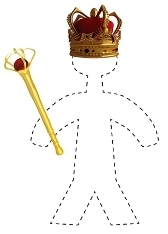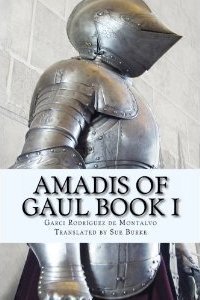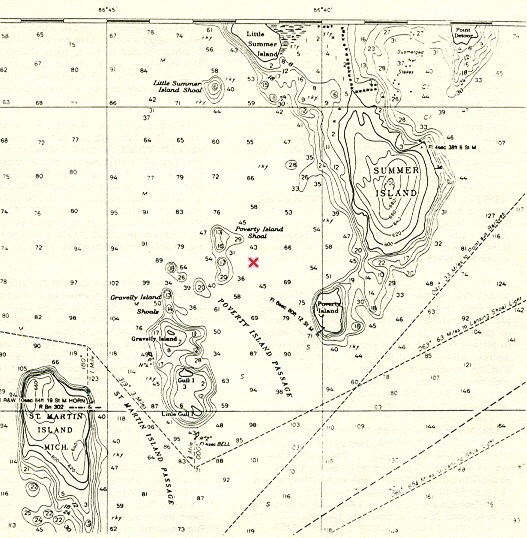Sue Burke's Blog, page 83
March 16, 2012
Another interview, this one about translation
http://emlabonte.blogspot.com/2012/03/blog-ring-of-power-interview-with-sue.html
This is the third of five brief interviews hosted by members of the Blog Ring of Power.
— Sue Burke
March 15, 2012
Why am I "evil"?
Today I'm interviewed at author Terri Bruce's blog:
http://twfendley.com/?p=714
This is the second of five brief interviews hosted by members of the Blog Ring of Power.
Today, find out about my writing routine and how I got the nickname "evil."
— Sue Burke
March 14, 2012
A blog tour of interviews begins
Today I'm interviewed at author Terri Bruce's blog:
http://www.terribruce.net/
This is the first of five brief interviews to be hosted by members of the Blog Ring of Power.
Today, find out what writing means to me, why I learned Spanish, and when and why my husband and I moved to Spain.
— Sue Burke
March 12, 2012
The original source

Where do fairy tales come from? Adult stories.
Specifically, where did Hans Christian Anderson get one of his most famous stories? From a medieval Spanish story meant to counsel adults.
You can read a translation of the original story at Amadis of Gaul:
http://amadisofgaul.blogspot.com/2012/03/men-who-tricked-king.html
— Sue Burke
March 7, 2012
I've self-published

For some time, I've been translating the medieval Spanish novel Amadis of Gaul a chapter at a time at http://amadisofgaul.blogspot.com. The novel is divided into four books, and Amadis of Gaul Book I is now available at Amazon in paperback and Kindle versions.
The book includes a preface by a present-day Spanish novelist, an introduction, notes to chapters, and an appendix explaining what eliminated Amadis from respectable bookshelves — it wasn't Don Quixote.
Why did I do it?
Because readers asked me to, and I didn't think any traditional publisher would take a chance on such an uncommon piece of literature.
How was the process?
Creating the actual text took the longest. I had published everything as blog entries, so I needed to do considerable editing to turn them into a book. The individual chapters in the novel — 43 of them — had to be assembled into one file. Then I had to select the entries to form the introduction, appendix, and notes to chapters, and stitch them all together.
I also needed to create a table of contents, a list of references, cover, and title pages. But I've worked as an editor before, so all this was nothing new, though it was work. Then it all had to be proofread. Again. And again.
Amazon provided templates to create the book layout that were easy enough to use, since I've done that sort of thing before. It all went just fine.
Then I decided to create a Kindle version. Again, Amazon provided clear instructions and software to work with, and it went fast — especially now that I had created the text.
These days, anyone can publish a book. This will change the world, but we don't quite know how yet.
What do I think of Amazon?
Amazon is a big, clever company — so big that it can be bad and good at once. It is both a solution to the long slow disaster that has been the publishing industry in recent decades, and a new problem that needs yet another solution. It's an 800-pound gorilla.
But it let me publish the book. I hope you like it.
— Sue Burke
March 6, 2012
Castles in Spain: fantasy writers and publishers have high hopes

I have an article in the current issue of Broadsheet, the ezine of Broad Universe, about fantasy writers in Spain. They face problems, but perhaps not the problems you would expect.
Read it at:
http://www.broaduniverse.org/broadsheet-archive/castles-in-spain-fantasy-writers-and-publishers-have-high-hopes-march-2012-bs-s
And here's some more information about languages and writing. In Spain in 2011, almost 22% of the books published were translations, and of those 47% were translated from English. But in English-language books published worldwide, only 8% of the books were translated from another language.
— Sue Burke
March 5, 2012
I'm interviewed at The Far Edge of Normal
Author Jaleta Clegg has interviewed me — everything you wanted to know about what inspires me, how I relax, and my advice for writing to music. You can read it at her blog, The Far Edge of Normal:
http://jaletaclegg.blogspot.com/2012/03/author-interview-sue-burke.html
Jaleta is fond of costuming, quilting, cooking, video games, reading, and writing — and she's the author of the science fiction novel Nexus Point:
http://www.nexuspoint.info/
— Sue Burke
February 29, 2012
My learning style
I recently answered a questionnaire about learning styles at a website called VARK:
http://www.vark-learn.com/english/page.asp?p=questionnaire
It asked me how I prefer to learn things – through visual, aural, reading, or kinesthetic strategies (hence VARK). For example, if I wanted to learn a new computer program, would I prefer written instructions, diagrams, talking to people, or experimenting with the keyboard?
I turned out to have a reading-based learning style. But as I thought about it, I really don't have a preference. I've had to learn how to use new computer programs, how to take photos with a new camera, and how to handle my mobile phone, always with the same problem: the instructions, however delivered, did not correspond to reality.
If I could get clear and accurate information, I wouldn't care if I received it via interpretive dance.
Instead, too often, I get instructions that say: Do this, and then select B from the menu. So I do that, but there's no menu, let alone B.
My learning style is: frustrated.
— Sue Burke
February 22, 2012
Treasure, alien life, and ghosts

I know of two supposed sunken treasures of gold in Wisconsin, one in Lake Michigan and one in Lake Mendota, both dating back to the Civil War. I've researched the one in Lake Michigan and even have the treasure map which locates the gold near Poverty Island Shoal at the tip of Door Peninsula, but I haven't decided to learn scuba diving. I don't think these treasures exist.
What interests me is why these stories stay alive. Lies are common as leaves in a forest, so why keep certain ones?
First, there's a simple wish for sudden wealth, the motive force behind lotteries.
Second, legends often say that treasures, buried or sunken, are guarded by leprechauns, mermaids, or at least a curse — by beings alien and magic to our existence. It's a wish for a livelier universe. In the same way, some of us hope for life on Mars or Andromeda, which also would be a real treasure.
Third, it's a wish to preserve and honor the past by keeping stories alive. Ghosts work the same way. I met a woman whose neighbors told her the troubled presence she had noticed on the stairway of the house she'd just bought was of a teenager who had committed suicide some 50 years earlier because he was gay. She hung a gay pride poster in the stairway to soothe him, and it seemed to work.
Most importantly, treasure is real. Sometimes — at Troy and in the Caribbean — gold is found, and then our wishes are confirmed. I can see Mars at night, and I might be watching Martians. If there are ghosts, I have visited haunted houses. When I lived in Milwaukee, someone else in that town named Susan Burke (not me) won the Supercash lottery. Riches await, if we keep searching.
X marks the spot.
— Sue Burke
February 15, 2012
Go Ahead — Write This Story: Writer's block
Writer's block: It happens, it hurts, but you can cure it and resume writing. Try free writing — write anything, just write. Or write about the story rather than adding text to it. If you never outline, try it; if you always outline, abandon it. Take a walk. Read something weird. Change your writing tools. Brainstorm at least five ideas about what can happen next. Work on some other writing. Or maybe you have finished the story and don't realize it yet. If you need an idea for a story, here are a few:
• This is a satirical novelette in which a secret corps of patriots raids George Washington's tomb for DNA to create a new American hero.
• This is a story about an all-night convenience store clerk who begins to suspect that certain of his customers are supernatural beings preparing for some sort of organized activity.
• This is short-short story about a man who believes the Mayan prophecy that the world will end in a flood on December 23, 2012; he gets a cabin in the Canadian Rockies and sits on his front stoop as the clock strikes midnight.
— Sue Burke



